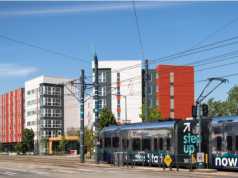Murray, Franken, Kerry Introduce New Legislation to Help Homeless Families Access Child Care
Improving Access to Child Care for Homeless Families Act of 2012
(Washington, D.C. – August 2, 2012 – (RealEstateRama) — Today, U.S. Senators Patty Murray (D-WA), Al Franken (D-MN), and John Kerry (D-MA) announced the introduction of the Improving Access to Child Care for Homeless Families Act of 2012, new legislation which aims to address the difficulties homeless families face in accessing reliable child care. In order to increase homeless families’ access to child care, this legislation would require states to describe in their state child care plan how they will meet the needs of homeless families, including through dissemination of information about child care to homeless parents. The legislation also prioritizes homeless children for access to child care, and creates a pilot program for states interested in pursuing a goal of increasing access to and continuity of care for homeless children, in order to identify best practices. More about the bill HERE.
“This legislation is important for families who are struggling to get into permanent housing,” said Senator Murray. “It is critical that these families have the child care resources and support they need during these difficult economic times.”
“Homeless families struggle to access the most basic essentials – housing, stable jobs, and child care,” said Senator Franken. “This legislation would help these struggling families find safe and quality child care which will in turn give parents a better chance to find a job and housing so they can get back on their feet.”
“This is about caring for kids who can’t stand up for themselves,” said Senator Kerry. “This is what grown-ups are supposed to do, we’re supposed to protect vulnerable kids. We want homeless families to know that even though they’re going through hell, they have a place to turn for care for their children even as we help get them into safe, secure, and lasting situations, and Senator Murray’s legislation will do just that.”
Homeless families face barriers to child care access above and beyond other families in poverty, including: high rates of mobility, difficulty accessing off-hours care, little, if any, income to apply towards child care subsidy co-pays, challenges accessing the documents required to enroll in child care, such as birth certificates and health records, and a lack of information about how to find, select, and access child care.
Organizations supporting the Improving Access to Child Care for Homeless Families Act include: Alliance for Excellent Education, American Federation of State, County, and Municipal Employees, American Federation of Teachers, Child Care Aware of America (formerly NACCRRA), LASP, Corporation for Supportive Housing, Covenant House, First Five Years Fund, First Focus Campaign for Children, Horizons for Homeless Children, Institute for Children, Poverty, and Homelessness, National Alliance to End Homelessness, National Association for the Education of Homeless Children and Youth, National Association for the Education Young Children, National Center on Family Homelessness, National Center for Housing and Child Welfare, National Coalition for Homeless Veterans, National Education Association, National Head Start Association, National Law Center on Homelessness and Poverty, National Network for Youth, National Network to End Domestic Violence, National Women’s Law Center, Service Employees International Union, Washington State Association of Head Start and ECEAP, YouthCare, United Ways of Washington, United Way Worldwide, and ZERO TO THREE.
Contact:
(202) 224-2621




